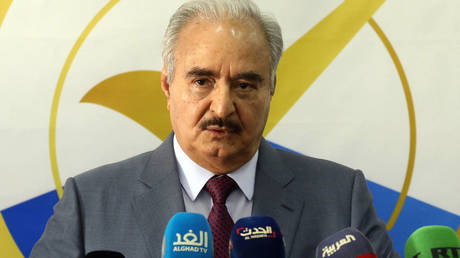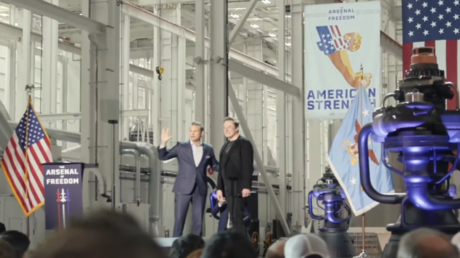
The vote to heal the crisis-ridden country was supposed to take place a year ago
Libya’s political forces have one last chance to lay the groundwork for holding elections in the war-torn country, the commander of the Libyan National Army (LNA), Field Marshal Khalifa Haftar stated on Saturday. His comments came a year after the country’s election authorities had to postpone the vote due to disputes between rival factions over how to conduct it.
In a speech in the city of Benghazi marking Libya’s Independence Day, Haftar, whose forces effectively control the eastern part of the country, said that the “General Command [of LNA]announces a final opportunity for the conflicting sides to draw up a viable roadmap and hold general elections.”
The Field Marshal noted that “the Libyans are the only ones capable of solving their problem and reaching a single unified Libyan state,” local media reported. Haftar also stressed the need for “equitable distribution of oil revenues” among the nation’s citizens.
His remarks came after Abdoulaye Bathily, Special Representative of the UN Secretary-General for Libya, called on all the country’s leaders to make efforts to resolve the crisis and to avoid “escalatory action that would threaten Libya’s already fragile stability and unity.”
Libya has been in the throes of crisis since 2011, when a NATO-backed coup ousted the nation’s long-time leader Muammar Gaddafi, who was later murdered. After several years of violent clashes, rival eastern and western forces managed to establish a ceasefire, and created an interim Government of National Unity while agreeing to hold elections on December 24, 2021.
However, the vote was postponed several times as the two sides remained at loggerheads over the exact rules, including those for verifying the results, arbitration of disputes, enforcement of the outcome, and eligibility of the main candidates, which included a number of controversial figures.
Among them was Saif al-Islam Gaddafi, the son of the late Libyan leader. He was accused of war crimes allegedly committed during the fighting in 2011, for which he was tried and sentenced in absentia by a court in Tripoli.




